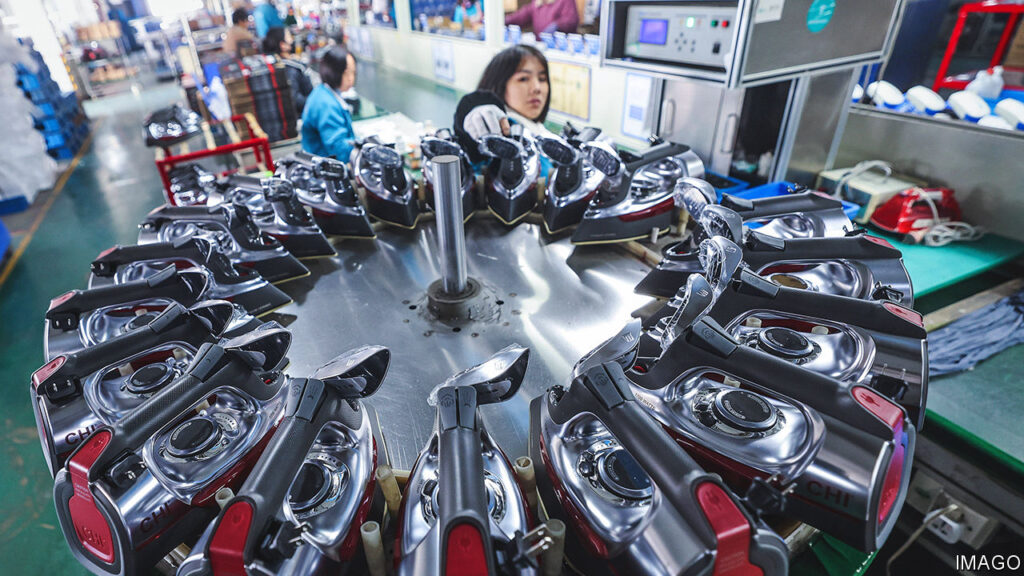Ningbo, a bustling city in eastern China, is not only known for its thriving industrial district but also for its political significance. With a population of 9.6 million residents, the city serves as a hub for the manufacturing sector, producing a wide range of goods for export. The deepwater harbour in Ningbo is a key lifeline for the city, facilitating the shipment of products to markets around the world. This strategic location has made Ningbo one of the busiest ports in the world, playing a crucial role in China’s economy.
The coastal region of Zhejiang province, where Ningbo is located, is home to a multitude of similar industrial hubs. These entrepôts are filled with thousands of small family-owned businesses that have contributed to the diverse manufacturing base of the region over the past four decades. From textiles and car parts to electronics and machine components, these firms produce a wide array of products that are in demand both domestically and internationally.
Despite the dominance of private industry in Ningbo, the city has garnered attention for its commitment to promoting “common prosperity”—a concept championed by Chinese President Xi Jinping to address wealth inequality. Through a combination of policies and initiatives, Ningbo has been able to achieve a level of economic stability and social harmony that has eluded many other parts of the country. As a result, the city has become a shining example of successful economic development under the leadership of the Chinese government.
In recent years, as China has grappled with a slowing economy and weak consumer demand, Ningbo has emerged as a beacon of optimism. Strong export performance and a more favorable global economic outlook have buoyed the spirits of residents and businesses alike in the city. The resilience of Ningbo’s economy in the face of external challenges has not gone unnoticed, with experts citing the city as a prime example of effective economic management and strategic planning.
However, as with any economy, there are potential risks and vulnerabilities that could impact Ningbo’s future prosperity. One such concern is the state of the global economy, particularly in the United States. If America’s economy were to experience a downturn, the effects would likely be felt in Ningbo sooner rather than later. The city’s heavy reliance on exports, especially to the US market, makes it vulnerable to any fluctuations in demand or trade policies.
In conclusion, Ningbo stands as a testament to the economic progress that China has made in recent decades. The city’s success story is a reflection of its resilience, adaptability, and commitment to fostering inclusive growth. As a key player in the global economy, Ningbo continues to play a vital role in China’s broader economic strategy, serving as a model for other regions to emulate. With a bright future ahead, Ningbo is poised to continue its trajectory of growth and development, setting an example for others to follow.












